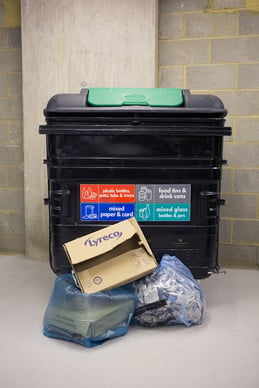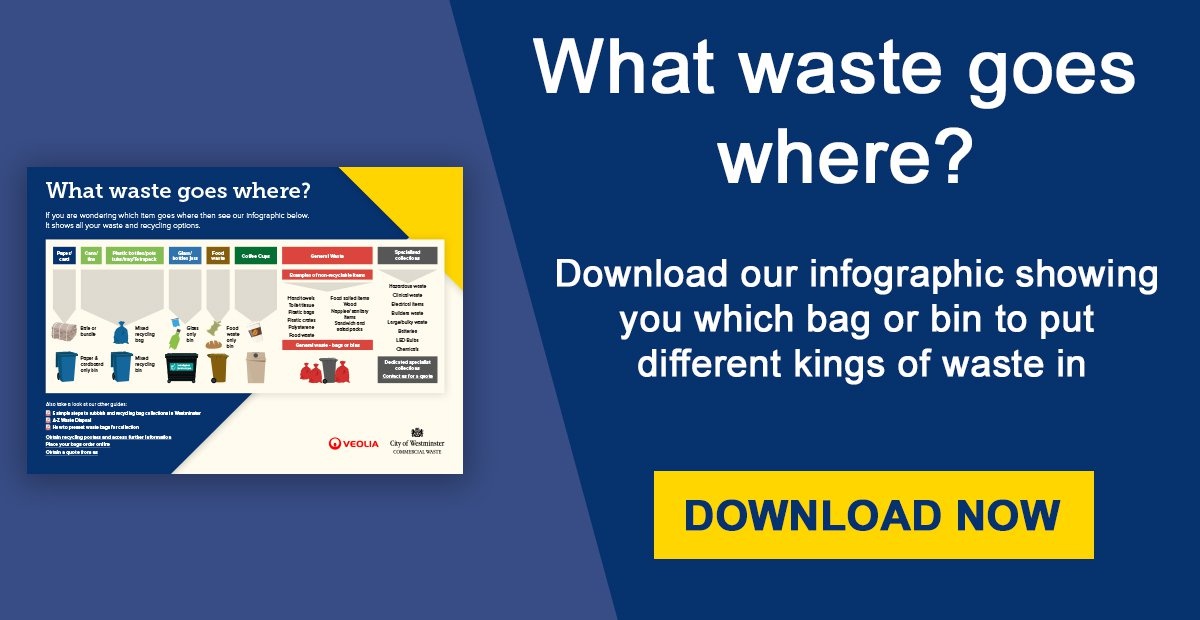Separating the right way 
We all love to recycle as much as we can and fortunately, a lot of rubbish that used to be dumped in a hole in the ground is now recycled into new resources and products. Good for your wallet and the planet. It is important, however, to make sure that you recycle the right items since not everything should just be thrown into your blue bag or (mixed) recycling bins. Every time when the wrong items end up in a truckload of recycling, it disrupts the recycling process and the load has to be disposed of as general waste. We call this contamination. Smaller amounts of contamination have to be picked out by hand.
Paper hand towels and tissues are a good example of contamination. Although they’re made out of paper fibres they cannot be recycled. The fibres are not suitable to be pulped and tissues have often been in contact with moisture and organic matter. Tissues and hand towels go in the red general waste bag or general waste bin. This is not a bad thing since they’re converted into heat and electricity for London homes: green calories for London.
Coffee cups
Coffee cups are also made out of paper but are often coated in plastic or wax to ensure they can hold liquids. Bits of the beverage contained in the cup also remain on the surface of the cup. All this means cups cannot be pulped alongside other paper. If you just throw them away as general waste, they don’t disrupt the recycling process.
Food contamination
Food waste is often the main culprit when trucks with recycling are turned away from the recycling facility because they’re contaminated. Leftovers from meals, lunches, breakfasts etc. should be kept far away from your recycling bin. Instead, have them collected separately for composting.
..and finally
Polystyrene is often used as a packaging material inside of boxes or is used for takeaway containers. Although it’s a form of plastic it is very difficult to recycle especially when its been in contact with food etc. Instead, just put it in your general waste bin.
To help you recycle the right way, why not search the Commercial Waste A-Z or contact us to ask anything you want to know about recycling.
We also have a handy ‘what waste goes where’ infographic to help you put your rubbish and recycling in the right place. Get a copy by clicking below.
Finally, don’t forget to visit some recycling pages on the WRAP website that have more information e.g. how to recycle at work.




.jpg?width=50)
